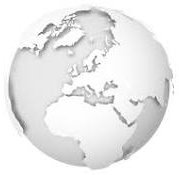
The Future of Museums
The New Normal (again)
Museums and universities have discovered how a coaching mindset is becoming a "must-have" for individuals and teams. When employees are "intrinsically motivated, they are 32 % more committed to (and 46 % more satisfied with) their jobs, suffer significantly less burnout than other employees do, and perform 16 percent better." (McKinsey, 2016). Coaching identifies and integrates effective behaviors that build agency, direction and functionality within organizations. It empowers autonomous decision-making, reduces managerial burnout and increases employee engagement, retention and satisfaction.
Today, as museums emerge into a new normal in 2023, a coaching approach is one of the top must-haves for individuals and teams. Coaching engages executives and teams to integrate work-life balance within their careers and builds in awareness. When employees are "intrinsically motivated, they are 32 percent more committed to (and 46 percent more satisfied with) their jobs, suffer significantly less burnout than other employees do, and perform 16 percent better." (1). Coaching builds agency within individuals and teams, reduces managerial burnout and increases employee retention. Coaching identifies and integrates effective behaviors that build agency, direction and functionality within individuals and teams. It empowers autonomous decision-making. Rather than mentoring their own experiences, coaches instead are co-active-listeners.
Using the GROW [Goal, Reality, Options and Ways forward) (Whitmore, 1992) model the coach works with the client to identify Goals, Current Realities. Options/Obstacles and Ways Forward. Coaching introduces life balance and agency and empowerment for museum and gallery staff and leaders. The objectives of this session is to 1) acquaint the participants with coaching, 2) present an example of an actual coaching session, and 3) to develop a discussion on how coaching could best fit individual work-life balance.
___________________________________________________________________
(1) “Working within established professional standards set by International Coaching Federation and leadership coaching programs at New York University and Columbia University coaches we work co-actively with clients and small teams. Using the GROW model (Whitmore, 1992) the Coach works with the client to identify Goals, Current Realities. Options/Obstacles and Ways Forward.” (2) Why frontline workers are disengaged (Bazigos and Caruso, McKinsey, 2016) (2) Why Coaching Matters: How Leaders Can Become Better Coaches And Build Stronger Teams.
Museums
How can museums enhance career satisfaction and retention in their organizations? Coaching builds cross-team functionality, autonomy and efficiency in times when cohesion is needed most.
Universities
How can researchers and academics thrive even in uncertain times? Academic coaching is not only essential for graduate students on MA, PhD and PostDoctoral programs in developing, planning and defending their research but also for academics from all levels in the continued development of their careers, contributing to the field, the mission of the university and the needs of new generations of students.
Arts
How can artists build sustainable and flourishing practices? Artists work at the interface of materials and ideas. They are constantly navigating in changing environments. Coaching enables them to set goals, and vision for exhibitions, work life balance, teaching and longer term life objectives.
Selected Resources
Recommended Books on Coaching
Kimsey-House, Henry (2018) Co-Active Coaching: Changing Business, Transforming Lives
Rogers, J (2016) Coaching Skills: the Definitive Guide to Being a Coach
Recommended articles on Coaching
Hagen, Tim (2021) Why Conversation Coaching Skills Are A Must, Forbes Coaches Council
Podcasts
HBR Presents: Coaching Real Leaders
Other
International Coaching Federation
Institute of Coaching, McLean, Affiliate of Harvard Medical School
About
Dr. Les Joynes A member of CAA’s Museum Committee and AAMG, Les is an arts scholar and critic based in New York and has curated and led projects in Japan, UK, France, Singapore, South Korea, China and Brazil. He served on the curatorial team of first Taipei Biennial "Site of Desire" in 1998. As a coaching scholar at Columbia University he is exploring how coaching can best serve executives and leaders in the cultural and creative industries. Les is a Leadership Coach at Columbia Business School, Entrepreneurship Coach at Parsons School of Design in New York and in 2019 introduced a coaching pilot at the Yale Center for British Art. He is a Coach in Residence at the Victorian School of the Arts at University of Melbourne in Australia and recently as Fulbright Scholar created India’s first coaching and mentorship program supporting tribal communities.
A graduate of Goldsmiths, London, Les holds a BA (Hons) Fine Art from Central Saint Martins, University of the Arts London; MA Fine Art from Goldsmiths, University of London; MFA from Musashino Art University, Tokyo; PhD from the Faculty of Art, Environment and Technology, Leeds Beckett University, UK; Post-Doctorate in Fine Art from the School of Art and Communications at University of São Paulo, Brazil; and M.Sc from Boston University and the Vrije Universiteit Brussels (VUB) Faculty of Economic and Social Sciences; MBA at California State University (CalPoly) and was Fellow at the University of the Arts London Research Center on Transnational Art, Identity and Nation (TrAIN).
Invited by Jonathan Crary, Meyer Schapiro Professor of Modern Art and Theory in the Department of Art History and Archeology at Columbia University, Les examined the intersection of local visual cultures and the future of museums of the future. Recent publications include: “The Artist-centric model in museums” published in Looking to New Institutional Models: China’s Cultural Landscape by Mid-Century, published by Long Museum in Shanghai. Recipient of the 2022 Fulbright-Nehru Academic and Professional Excellence Award, Les was Fulbright-Nehru Senior Scholar exploring visual cultures, performance and museums at the Indira Gandhi National Centre for the Arts, New Delhi and Visiting Associate Professor of art and art history at Visva Bharati University in West Bengal.






